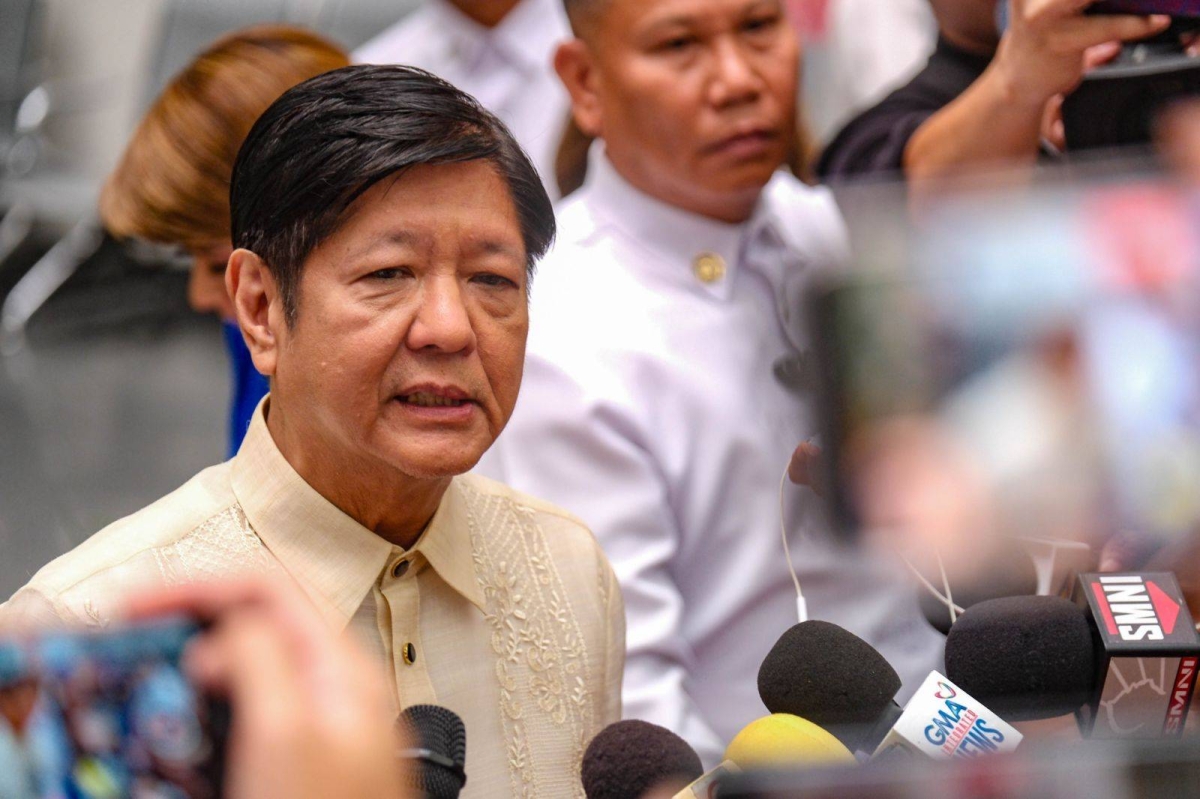In a recent development, President Ferdinand Marcos Jr. of the Philippines has stated that he will leave the validation of signatures for a “people’s initiative” to amend the Constitution in the hands of the Commission on Elections (Comelec). This move comes as the President emphasizes the importance of ensuring the integrity of the process.
During a chance interview with reporters, President Marcos highlighted the significance of a fair and transparent validation process. He stressed that any signature that was obtained through illicit means, such as bribery, should not be taken into account. By entrusting the task to Comelec, the President aims to maintain the credibility and legitimacy of the initiative.
The decision to defer to Comelec reflects President Marcos’ commitment to upholding the rule of law and respecting the democratic process. By allowing an independent body to validate the signatures, the President ensures that the outcome of the initiative accurately represents the will of the people.
The President’s stance on this matter aligns with international standards of electoral integrity. Across the globe, electoral commissions play a crucial role in ensuring the fairness and transparency of elections and related processes. By adhering to these principles, the Philippines demonstrates its commitment to democratic values and practices.
The validation of signatures is a critical step in any constitutional amendment process. It ensures that the proposed changes have the necessary support from the public. By entrusting this task to Comelec, the President acknowledges the commission’s expertise and independence in carrying out such responsibilities.
The President’s statement also addresses concerns about the potential for fraudulent activities during the signature collection process. By acknowledging the existence of suspicion surrounding certain signatures, President Marcos is acknowledging the need for vigilance and thorough scrutiny. This approach helps safeguard the integrity of the initiative and prevents any attempts to manipulate the outcome.
The decision to defer to Comelec for signature validation also highlights the importance of public trust in the democratic process. By relying on an independent body, the President aims to assure the Filipino people that their voices will be heard and that their participation in the initiative will be respected.
In conclusion, President Ferdinand Marcos Jr.’s decision to leave the validation of signatures for the “people’s initiative” to amend the Constitution to Comelec demonstrates his commitment to upholding the rule of law and ensuring the integrity of the process. By entrusting this task to an independent body, the President emphasizes the importance of fair and transparent procedures. This approach aligns with international standards of electoral integrity and reflects the Philippines’ commitment to democratic values. By acknowledging the existence of suspicion surrounding certain signatures, the President emphasizes the need for vigilance and thorough scrutiny to prevent any fraudulent activities. Ultimately, this decision helps build public trust in the democratic process and ensures that the outcome of the initiative accurately represents the will of the people.







